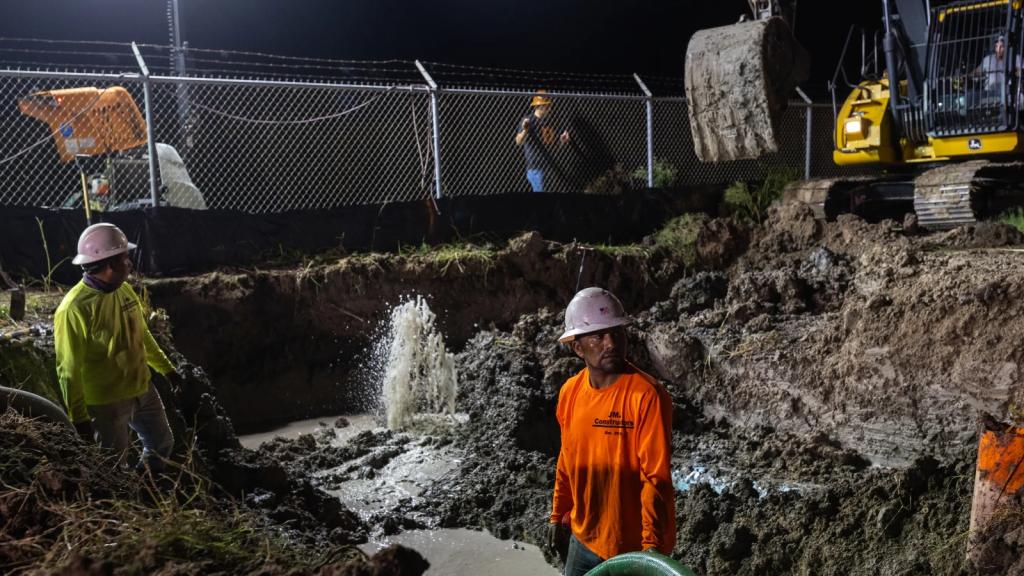Again, anyone who thinks there’s not going to be a bipartisan climate bill in the spring or an international deal coming out of Copenhagen isn’t paying attention:
Citing progress on many issues, the White House said Friday that President Obama had shifted the date he would appear at the United Nations climate change conference in Copenhagen to Dec. 18, the last scheduled day.
That’s the NY Times lede on the following remarkable announcement from the White House:
The President strongly believes that all nations have a responsibility to combat the threat of climate change. He has already taken unprecedented action to do so at home, including an historic investment in clean energy solutions that will reduce our dependence on oil and create jobs. Abroad, he has engaged leaders bilaterally and multilaterally on the issue of climate change, and agreed to participate in the climate conference in Copenhagen.
After months of diplomatic activity, there is progress being made towards a meaningful Copenhagen accord in which all countries pledge to take action against the global threat of climate change. Following bilateral meetings with the President and since the United States announced an emissions reduction target that reflects the progress being made in Congress towards comprehensive energy legislation, China and India have for the first time set targets to reduce their carbon intensity. There has also been progress in advancing the Danish proposal for an immediate, operational accord that covers all of the issues under negotiation, including the endorsement of key elements of this approach by the 53 countries represented at the Commonwealth Summit last weekend.
This week, the President discussed the status of the negotiations with Prime Minister Rudd, Chancellor Merkel, President Sarkozy, and Prime Minister Brown and concluded that there appears to be an emerging consensus that a core element of the Copenhagen accord should be to mobilize $10 billion a year by 2012 to support adaptation and mitigation in developing countries, particularly the most vulnerable and least developed countries that could be destabilized by the impacts of climate change. The United States will pay its fair share of that amount and other countries will make substantial commitments as well. In Copenhagen, we also need to address the need for financing in the longer term to support adaptation and mitigation in developing countries. Providing this assistance is not only a humanitarian imperative – it’s an investment in our common security, as no climate change accord can succeed if it does not help all countries reduce their emissions.
Based on his conversations with other leaders and the progress that has already been made to give momentum to negotiations, the President believes that continued US leadership can be most productive through his participation at the end of the Copenhagen conference on December 18th rather than on December 9th. There are still outstanding issues that must be negotiated for an agreement to be reached, but this decision reflects the President’s commitment to doing all that he can to pursue a positive outcome. The United States will have representation in Copenhagen throughout the negotiating process by State Department negotiators and Cabinet officials who will highlight the great strides we have made this year towards a clean energy economy.
And here is the statement by CAP CEO John Podesta:
President Obama’s decision to commit the US to a global climate assistance fund for developing countries and to go to Copenhagen on December 18th is a game changer.
After the President’s trip to Beijing and the Indian Prime Minister’s visit to the White House, subsequent commitments to reduce carbon intensity by both China and India have produced a burst of momentum in advance of next week’s UN summit in Copenhagen.
Since January this administration has demonstrated its commitment time and time again to rejoin the community of nations on the most critical of global problems. Every step of the way naysayers have pounced on advances as insufficient proof of a real commitment. The announcement this afternoon demonstrates the Administration’s resolve to address the perils of global warming, evidenced by our best science, and the moral importance of taking the necessary steps to live up to our global obligations.
Finally, we have analysis by CAP Senior Fellow Andrew Light who coordinates American Progress’s participation in the Global Climate Network, focusing on international climate change policy and the future of the United Nations Framework Convention on Climate Change. He is also director of the Center for Global Ethics at George Mason University:
Obama’s decision will effectively transform the Copenhagen climate conference into the largest summit yet of world leaders focused on global warming (oh yes, I know, there were something like 108 at Rio but they also did biodiversity there). The decision to commit the US to a global climate assistance fund for developing countries is essential for any hope for a good outcome.
Just a few weeks ago prospects for any meaningful outcome at the UN climate summit in Copenhagen appeared out of reach. President Obama upped the ante with his statement in Beijing in November that he would seek an interim agreement in Copenhagen on the way to a final treaty in 2010. He sealed the deal with his announcement before Thanksgiving that the US will commit to a reduction in carbon pollution in the range of 17 percent by 2020 on the way to a decrease of 83 percent by 2050. He committed then to personally go to Copenhagen on December 9th to support this proposal on his way to Oslo to accept the Nobel Peace Prize on December 10th.
Skeptics dismissed this turn by the administration as too little too late, pointing out that if Obama was really serious then he would go to Copenhagen toward the end of the meeting on December 18th, when some 98 world leaders (the last count according to the Danish ambassador of the US as of yesterday) will be in attendance rather than only going at a time convenient to his schedule. For the last week every interview I’ve given on Obama going to Copenhage has included this question.
Today Obama set those concerns to rest. After meeting with some of our closest allies he has announced that he will attend the Copenhagen meeting at the end to ensure its success. More importantly, he announced a commitment by the United States to a global fund to mobilize $10 billion a year by 2012 to support adaptation by developing countries to the impacts of global warming that they are already experiencing and mitigation of harmful carbon pollution. Commitment on this scale by developed countries had recently emerged as an absolutely necessary condition for keeping all parties at the table. The decision today may well have prevented the meeting from ending in a dangerous stalemate. Not providing such “q
uick start” funding has been declared in recent weeks as a deal breaker and evidently the administration received the message.
You’ll be hearing a lot from him in the next two weeks.
Kudos to team Obama for understanding that this is one of the crucial moments in global history, that the time to act is now.


